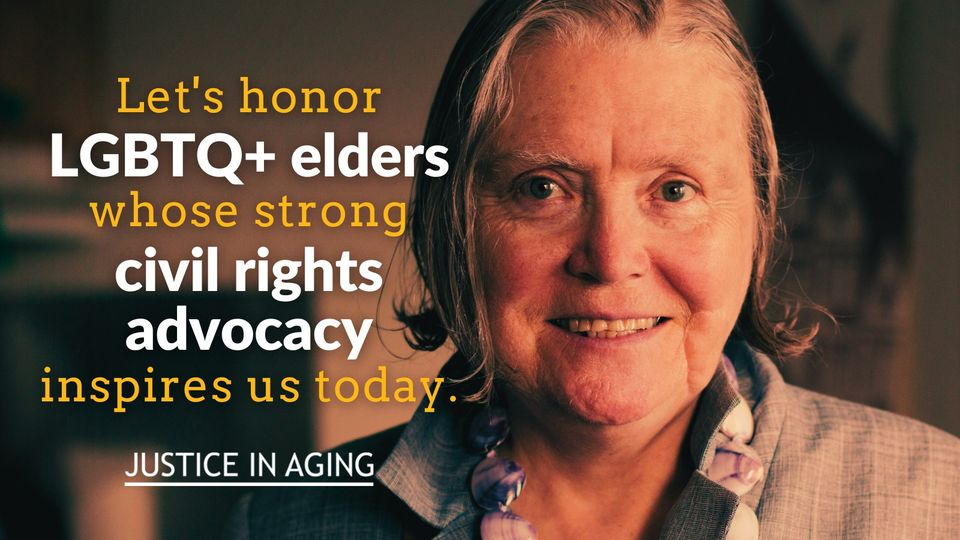|
|
Social Security Trustees Report Shows We Can Expand Social Security |
|
The Trustees reports on the Social Security and Medicare Trust Funds were released on Thursday, showing once again that Social Security’s Old-Age and Survivors Insurance (OASI) Trust Fund is strong and solvent, with enough money to cover full benefits and expenses until 2034 — an improvement of one year later than reported last year.
The Medicare Part A Trust Fund for hospital care now has sufficient funds to cover its obligations until 2028, two years later than reported last year.
In response to the brighter outlook, the Alliance issued a statement saying it is time to strengthen both Social Security and Medicare for the future and expand benefits.
“Congress must act on two fronts to make that happen: lift the cap on earnings — currently $147,000 — subject to the 6.2% payroll tax, and lower prescription drug prices to stem their rapid growth,” said Richard Fiesta, Executive Director of the Alliance.
“An expansion of Social Security benefits is critical to help seniors fight inflation, and H.R. 5723, Rep. John Larson’s (CT) ‘Social Security 2100: A Sacred Trust,’ would make that increase a reality for all beneficiaries by requiring wealthy Americans to pay payroll taxes on wages above $400,000. Seniors need Congress to pass this critical legislation,” Fiesta added.
In addition, the Social Security Disability Insurance (DI) Trust Fund, which pays benefits to people with disabilities, is no longer projected to be depleted within the 75-year projection period, a significant improvement from last year.
Fiesta voiced his strong disapproval that despite these figures, Sen. Rick Scott (FL), who chairs the National Republican Senatorial Committee that recruits and supports Republican candidates for the U.S. Senate, has released a plan that would sunset all federal legislation, including Social Security and Medicare, after five years.
“No one should accept this lie, and we will not stand for any cuts to the benefits we have paid for,” Fiesta concluded. |
|
Medicare Beneficiaries Will See A Premium Cut, But Not Until 2023 |
|
Medicare beneficiaries will get a premium reduction — but not until next year — reflecting what U.S. Department of Health and Human Services (HHS) Secretary Xavier Becerra said was an overestimate of the cost of covering the expensive and controversial new Alzheimer’s drug Aduhelm.
Secretary Becerra said the 2022 Medicare Part B premium should be adjusted downward, but that the Centers for Medicare and Medicaid Services (CMS) would not be able to make the change in the middle of the year due to legal and operational hurdles. He did not say how much the premium would be lowered.
Part B premiums jumped by $22 a month, to $170.10, for 2022, in part because of Aduhelm, which was approved despite dubious evidence of its effectiveness. CMS has limited coverage of Aduhelm to use in clinical trials approved by the Food and Drug Administration or the National Institutes of Health.
The Alliance had called for a reassessment of the Part B premium increase back in January. The drug’s manufacturer, Cambridge, Massachusetts-based Biogen, cut the cost of the drug in half, but it still costs approximately $28,000 a year.
“It is unconscionable for Medicare premiums to increase by 14.55%, and for one overpriced and unproven drug to play such a significant role,” said Joseph Peters, Jr., Secretary-Treasurer of the Alliance. “2023 can’t come soon enough for seniors who are struggling to pay this year’s higher premium.” |
|
Kaiser Health News: ‘That’s Just Part of Aging’: Long Covid Symptoms Are Often Overlooked in Seniors By Judith Graham |
|
|
Terry Bell, who has been diagnosed with long covid, says he now walks with a cane for only short distances and is 50 pounds lighter than before getting sick. (Photo credit: Bob McReynolds)
|
|
Nearly 18 months after getting covid-19 and spending weeks in the hospital, Terry Bell struggles with hanging up his shirts and pants after doing the laundry.
Lifting his clothes, raising his arms, arranging items in his closet leave Bell short of breath and often trigger severe fatigue. He walks with a cane, only short distances. He’s 50 pounds lighter than when the virus struck. |
|
Bell, 70, is among millions of older adults who have grappled with long covid — a population that has received little attention even though research suggests seniors are more likely to develop the poorly understood condition than younger or middle-aged adults.
Long covid refers to ongoing or new health problems that occur at least four weeks after a covid infection, according to the Centers for Disease Control and Prevention. Much about the condition is baffling: There is no diagnostic test to confirm it, no standard definition of the ailment, and no way to predict who will be affected. Common symptoms, which can last months or years, include fatigue, shortness of breath, an elevated heart rate, muscle and joint pain, sleep disruptions, and problems with attention, concentration, language, and memory — a set of difficulties known as brain fog.
Read more here. |
|
June is LGBTQ+ Pride Month
|
|
The Alliance wishes all of our members a Happy Pride Month! More than three million lesbian, gay, bisexual and/or transgender adults over the age of 50 live in the United States. |
|
|
The National Resource Center on LGBTQ+ Aging has resources available for LGBTQ+ adults, their families and caregivers. Established in 2010 through a federal grant from the U.S. Department of Health and Human Services, it provides |
|
training, technical assistance and educational resources to LGBTQ+ organizations, care partners, community members, and the aging network.
“Pride Month is a reminder that all Americans of all ages want to live our lives with freedom and dignity,” said Robert Roach, Jr., President of the Alliance. “We are a diverse nation and that makes us stronger.” |
|
Thanks for reading. Every day, we're fighting to lower prescription drug prices and protect retirees' earned benefits and health care. But we can't do it without your help. Please support our work by donating below. |
|
|
|
|
Alliance for Retired Americans | 815 16th Street, NW | Washington, DC 20006 | www.retiredamericans.org



